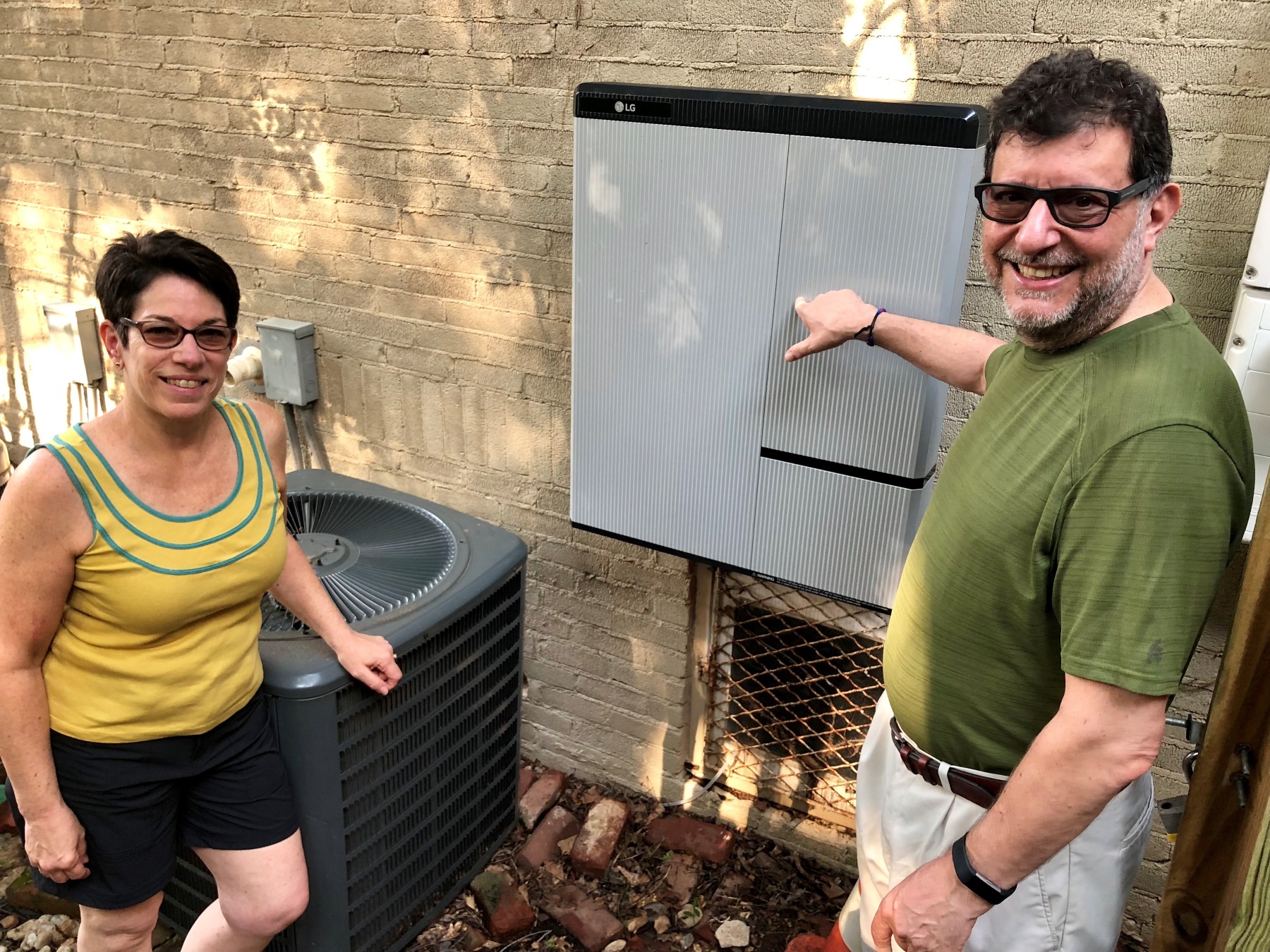Solarize Atlanta Crowdsourcing To Bring Down Solar Costs

Ruth and Larry Menter turned to Solarize Atlanta to bring down the cost of their residential solar project. Its 20 panels and high-capacity battery mean they can actually sell energy back to their electric utility company.
Jim Burress / WABE
Buying a lot of something all at once is usually cheaper than buying the same thing in smaller amounts over time — a concept known as “economy of scale.”
Now, some solar advocates in Atlanta are bringing the principle to a rooftop near you, and, in the process, bringing down the cost of installing a residential solar system.
Five years ago, Larry and Ruth Menter wanted to take the plunge and go solar, but the tree canopy of their Buckhead home just blocked out too much light.
That’s not a problem at their current home, a renovated bungalow in Atlanta’s trendy Old Fourth Ward. It gets enough exposure to support 20 solar panels — enough to take the Menters off the grid, and then some.
“I was bound and determined that if we could make this a reality, we would,” said Ruth Menter about her commitment to solar.
But that reality was an expensive one, although it got a bit cheaper when the Menters came across a coalition of nonprofit and for-profit entities interested in making solar technology more accessible.
“Through Solarize Atlanta, the price points became acceptable and favorable,” Ruth Menter said.
To do it, Solarize Atlanta applies a crowdsourcing approach. It first negotiates discounts from solar manufacturers and installers who, in exchange, benefit from getting large bunches of customers — like the Menters — all at once.
The more solar buyers who come aboard, the bigger the discounts all will share.
“So we want as many people to sign up as possible so we ultimately spend a little bit less,” Ruth Menter said.
In fact, Larry and Ruth Menter are so evangelical about their solar installation, they’re opening their house to anyone who wants to see what their “solar system” is all about.
That’s important to help people be more comfortable with both the technology and the expenditure necessary to get it, says Jeanette Gayer, executive director of Environment Georgia.
“There’s just not a lot of incentives out there,” Gayer said. “Georgia does not have a lot of really good policy to help individual roof owners put solar on their roofs.”
That’s why building a core mass with spending power is so important, Gayer said. And the discounts are sizable — with tax credits, they can shave $10,000 off a single solar install, representing a 30 percent savings.
That could be enough incentive to get a few more panels on a few more roofs, Solarize officials believe. By doing so, they hope each individual project becomes a catalyst for more widespread solar adoption.








